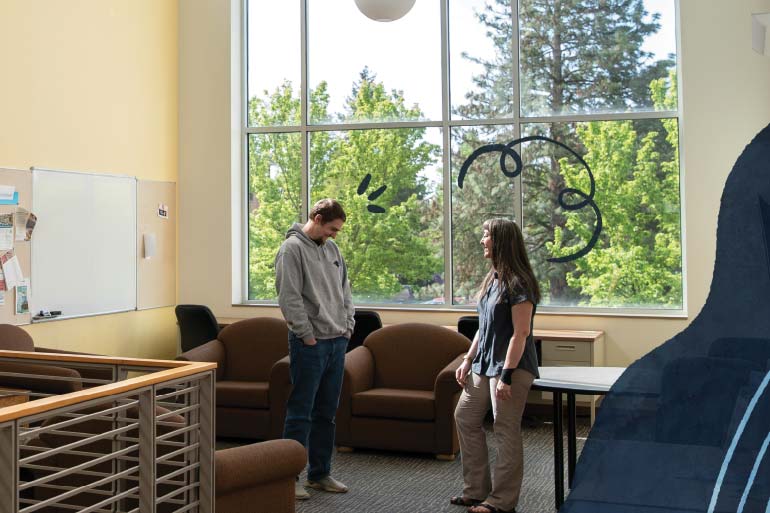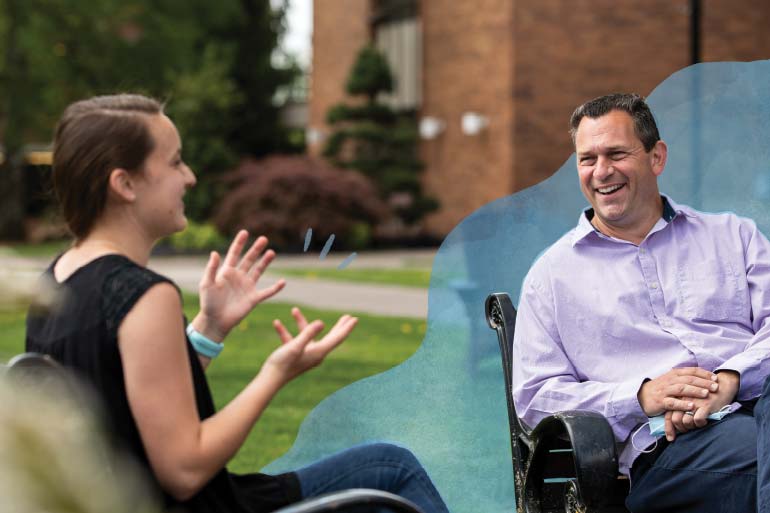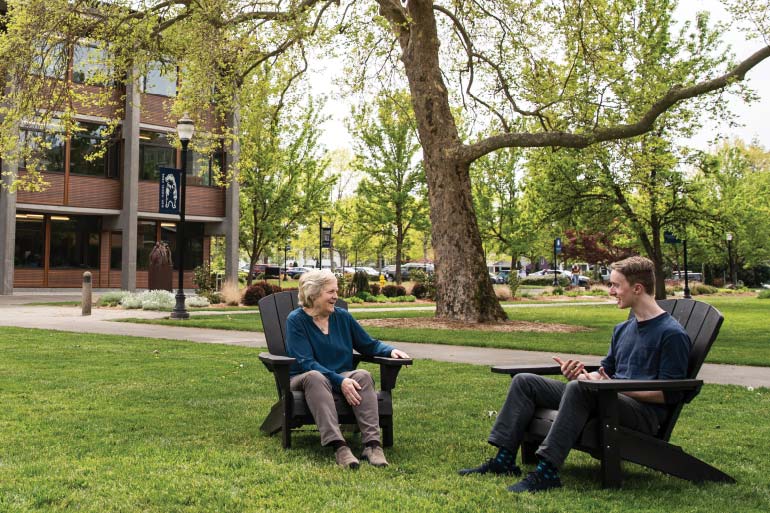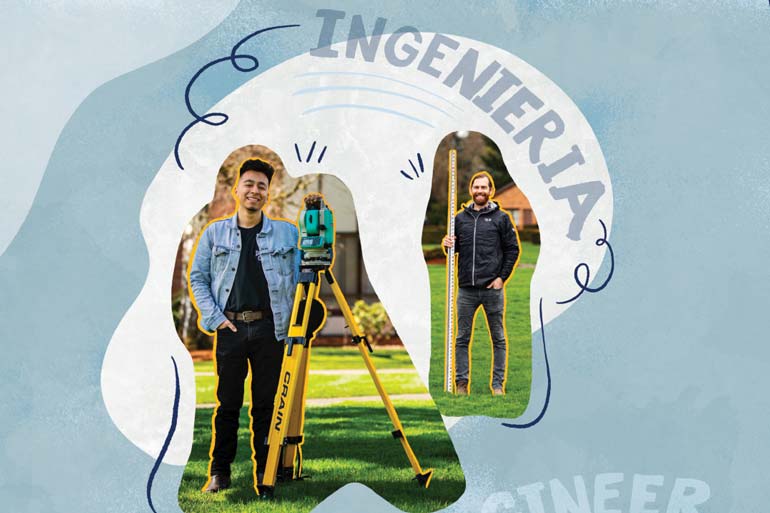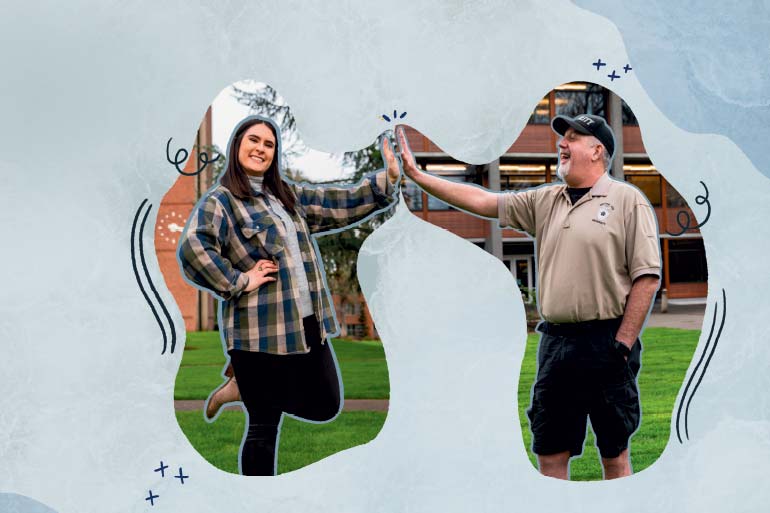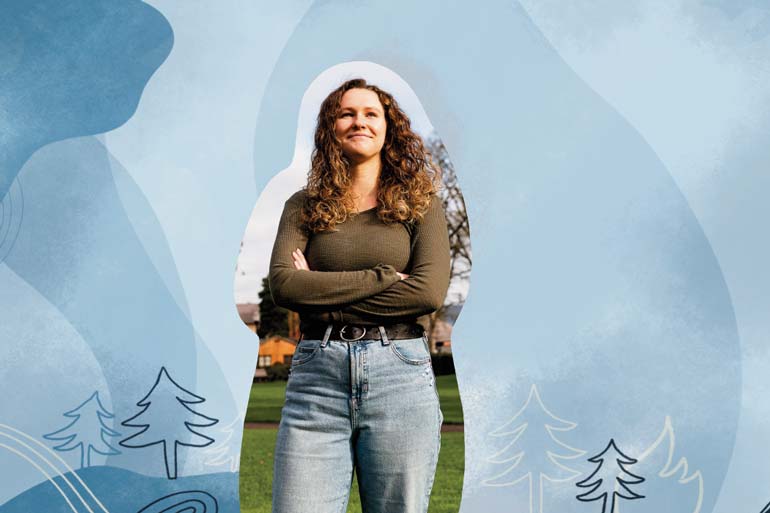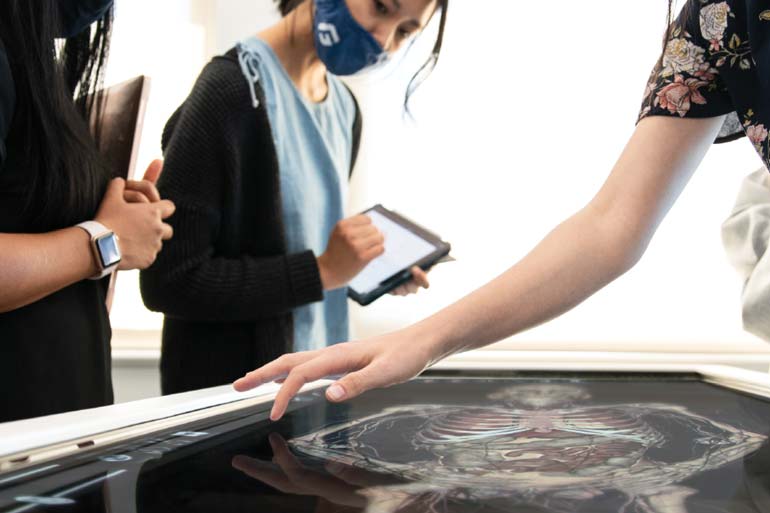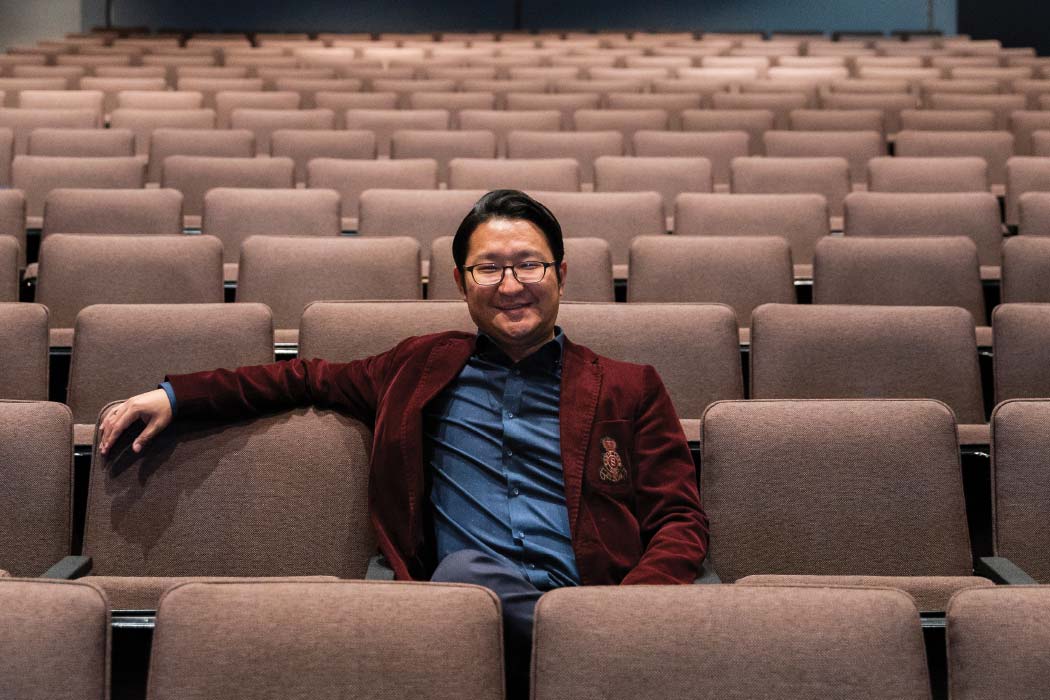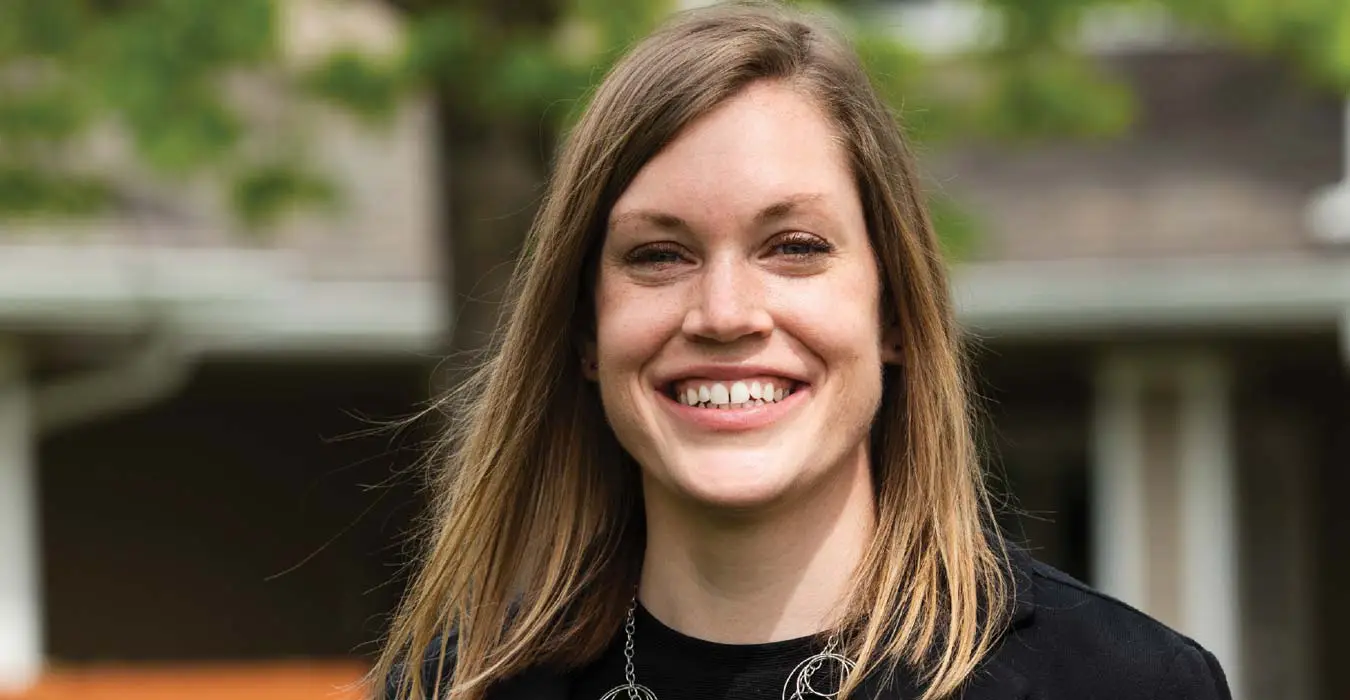
The Heart of a Hero
When COVID-19 struck her long-term care facility, Tracy Berg refused to leave her residents alone
By Jeremy Lloyd
Tracy Berg (G13) has always had a heart for seniors, a quality her friends at George Fox fittingly described as “aggressively trying to help elderly people.”
Do you need help carrying those groceries? Can I walk with you across the street? “My friends would say, ‘They’ve made it this far, they’re walking fine,’” she recalls, laughing. “And I’m like, ‘But their shoes are untied!’”
It was only a matter of time before her passion for senior care led Berg to Marquis Hope Village, a rehabilitation and long-term care facility in Canby, Oregon.
As social services director, her job entails a variety of activities that all boil down to a single mission: advocating for the individual needs and rights of residents. Each morning, she gets in early and reviews the previous night’s report: Are there new residents? Did anyone move rooms? Were there medication changes? Did anyone have a fall? Do families need to be contacted? The latter is a big part of her job.
“I tell families, ‘I’m here. I will care for your loved one so you don’t have to be the caregiver anymore. And I can walk with them through that journey all the way through end of life,” she says. “This isn’t just a job for me. Every single day I come into work, I care so passionately about these people.”
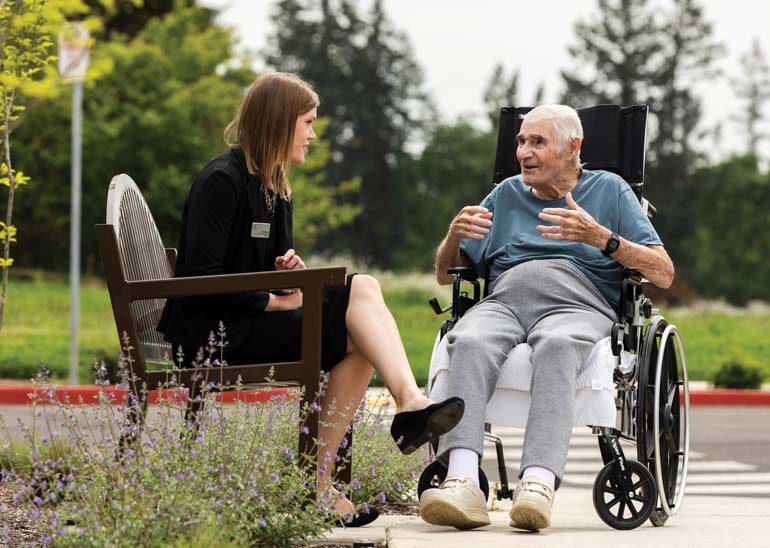
That passion shows well beyond the typical requirements of the job. One of her favorite memories involves a resident who was near the end of his life. He had served in the Navy and was a deep-sea fisherman. “He loved ships. He loved anything related to the water,” she recalls. “So for Halloween I made his wheelchair into a boat. I got him an orange vest, I got him a sailor’s hat with his name on it.”
And so the two of them, both dressed as sailors, motored around the facility in their wheelchair boat. “I’m not a DIY person,” Berg laughs. “I spent way too many hours on that costume. But I have this video of him in the costume, just thrilled, just loving it.”
A few weeks later, the man passed away.
When a resident passes, a white ribbon is placed next to their name on the door to their room. “The morning after, I always come and stand by the door and I’ll usually put my hand on that ribbon and take a minute to go through the memories I had with them,” Berg says. “It’s just my way of saying goodbye.”
It’s a way to grieve, process and move on. To mentally prepare for the next resident that needs her. But nothing could prepare her for June 2020 – the month a COVID-19 outbreak changed everything for Berg and the residents she cares so much for.
“By the time we discovered it – I’m talking like as soon as someone spiked a minimal fever – it had already spread by that point. It didn’t matter,” she says.
Residents were sick. Employees were sick. Berg, too, tested positive. Everyone with COVID was quarantined together, so she kept working. “It was all hands on deck,” she says.
Berg’s responsibility during the crisis was one of the hardest. “It was my job as social services director to call the families and say your loved one tested positive. That was a tough phone call to make.”
Eventually, Berg became too sick to work. She experienced flu-like symptoms, loss of taste, and pain in her legs. She was sent home. But the anxiety of not being there was too much. She had to return. She could still sit with residents so they weren’t alone in their final moments. She could still hold a phone to their ear as family members gathered outside their bedroom window. She could still hold their hand. And so she stayed, being present, giving of herself, loving her residents until the end – aggressively.
I care so passionately about these people. ”
For her selfless acts of compassion, Berg was presented with a “Legend Award” from Marquis, for which she is grateful. But not all stories have a happy ending, especially those about COVID. Residents were lost before their time, and Berg still feels the lingering physical and emotional effects of “the worst month of my life” more than a year later.
But during the experience she also felt something else: “I could feel that people were praying for me,” she recalls. “When I had a moment to take a deep breath, I was like, ‘Oh my gosh, I can tangibly feel it.’ It was an incredible experience.”
In the midst of the outbreak, a former roommate from Berg’s George Fox days drove to the facility to encourage her friend. She brought a coffee and waited patiently at the door of the locked-down facility for someone to bring it inside. When the beverage finally made its way to Berg, she looked at it and stopped, tears welling up in her eyes. On the side of the cup, where a name is normally written, was one simple word: “Hero.”
Featured Stories
Bruin Notes
- Bruins Win Six Conference Titles, Land 14 All-American Honors
- Esports Comes to George Fox
- Toole Claims School's First Individual National Golf Title
- In Print
- Grant Funds Summer Mentorship Program for Latinx High School Seniors
- Nursing Students Aid in Local Vaccination Efforts
- University Announces Plans for Occupational Therapy Program
- Recent Recognition




